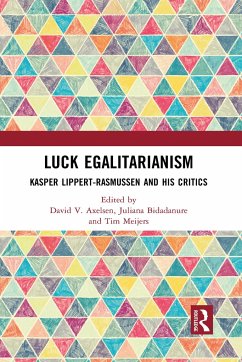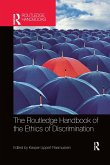This edited volume offers a critical discussion of luck egalitarianism - one of the most prominent views in contemporary political philosophy - through an exploration of the theory of one of its leading proponents, Kasper Lippert-Rasmussen.
When (if ever) can inequalities in how well peoples' lives go be justified? Luck egalitarianism provides an appealing answer: inequalities are just if, and only if, they are the result of the exercise of individual responsibility. Kasper Lippert-Rasmussen lucidly defends and specifies this view in his own book Luck Egalitarianism. The authors in this volume offer a critical discussion of the key features of his view. They discuss disagreements within views which assign an important role to responsibility. They go on to push the limits of luck egalitarianism: what about inequalities between us and the dead? And inequalities between groups? Finally, they criticize some of the central tenets of luck egalitarianism, including its tendency to avoid action-guiding judgements and its focus on distributions rather than interpersonal relations.
This book was originally published as a special issue of Critical Review of International Social and Political Philosophy.
When (if ever) can inequalities in how well peoples' lives go be justified? Luck egalitarianism provides an appealing answer: inequalities are just if, and only if, they are the result of the exercise of individual responsibility. Kasper Lippert-Rasmussen lucidly defends and specifies this view in his own book Luck Egalitarianism. The authors in this volume offer a critical discussion of the key features of his view. They discuss disagreements within views which assign an important role to responsibility. They go on to push the limits of luck egalitarianism: what about inequalities between us and the dead? And inequalities between groups? Finally, they criticize some of the central tenets of luck egalitarianism, including its tendency to avoid action-guiding judgements and its focus on distributions rather than interpersonal relations.
This book was originally published as a special issue of Critical Review of International Social and Political Philosophy.








